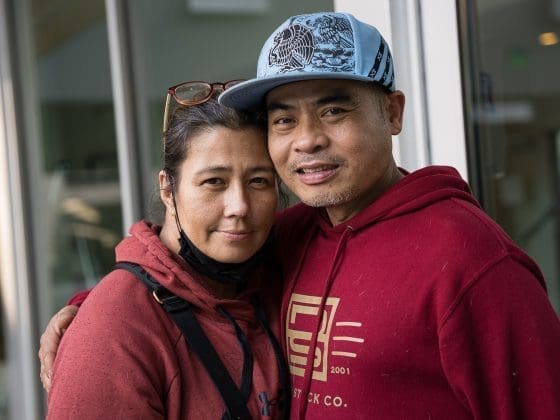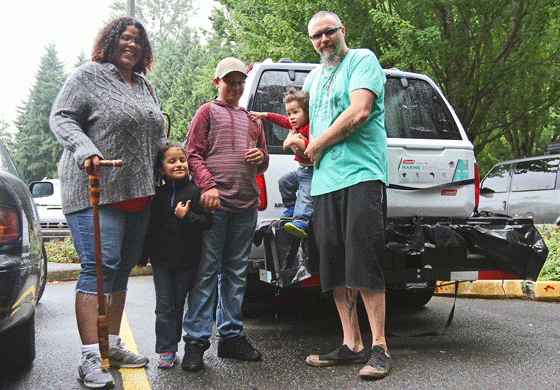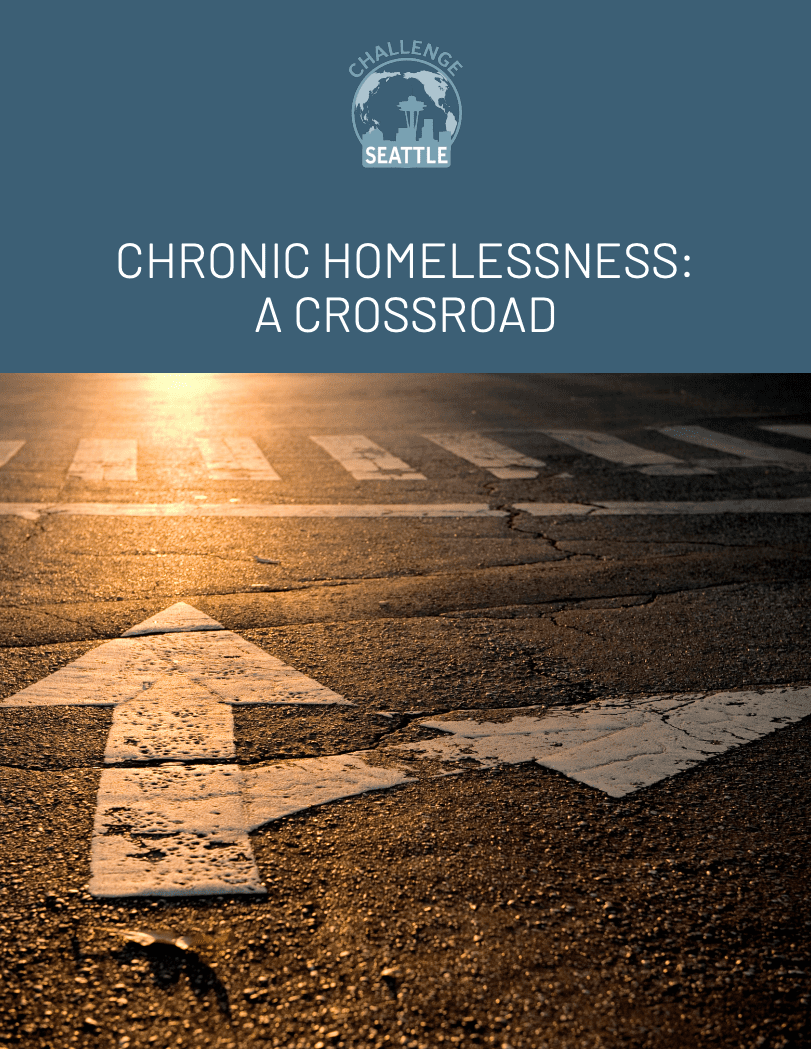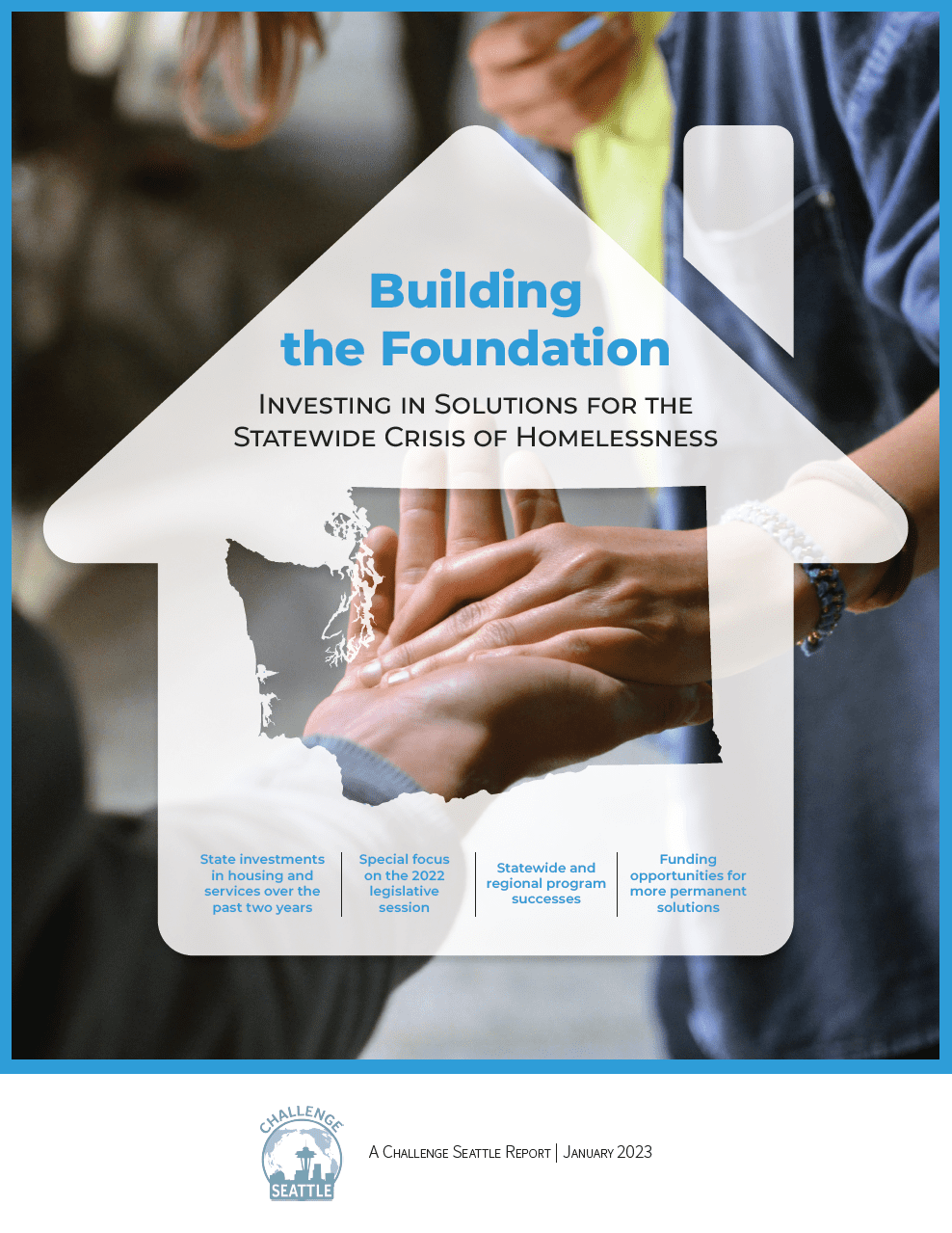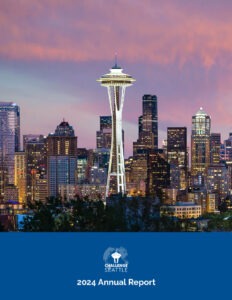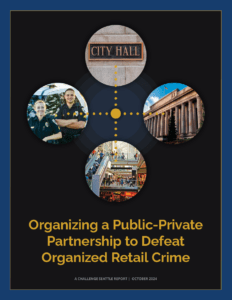INITIATIVE
Chronic Homelessness:Supporting Best Practices Statewide
At the state and local levels, we support the implementation of research-based best practices to address the homelessness crisis in our communities.
The Challenge
Homelessness is not a new problem, but it has reached crisis levels statewide. Today, this crisis is impacting communities in every corner of our state.
Chronic homelessness is especially challenging and prevalent across the state. Individuals experiencing chronic homelessness are defined as having a disability and been homeless for long or frequent amounts of time. Because they may be struggling with physical disabilities, behavioral health disorders, and/or serious psychiatric and emotional conditions, they are harder to reach, stabilize, and house.
Estimated number of Washington residents living without permanent shelter in 2022:
Only California, New York and Florida had larger total homeless populations than Washington.
Percentage of Washington voters who rank homelessness as a high priority for the state:
Source: Challenge Seattle public polls, October 2021 and December 2022
In 2020, King County had the second fastest-growing chronically homeless population in the country behind only Oakland, California.
Source: 2020 Point In Time Count, HUD
of King County's chronically homeless have a serious psychiatric/emotional condition
…compared to 4% of the total county population
of King County’s chronically homeless have a substance use disorder
…compared to 5% of the total county population.
Note: All data was self-reported during the 2020 Point in Time Count; the chronic homeless population has worse health conditions across all reported factors, which also includes chronic health problems (such as diabetes), physical disabilities, intellectual disability/ memory impairment, traumatic brain injuries and AIDS/HIV.
Our Focus
In 2020, the business community sought to understand the top issues of concern for post-pandemic recovery and the future of the region. Through polling, we heard that Washington residents were deeply concerned about homelessness, specifically chronic homelessness, which had risen dramatically in recent years. While service providers and governments work on this issue daily, the business community wanted to bring urgency to breaking down the siloed homelessness ecosystem while supporting data-driven investments in housing and services.
Our Work
“Chronic Homelessness: A Crossroad”
In the Spring of 2021, Challenge Seattle, in partnership with Boston Consulting Group, issued its report “Chronic Homelessness: A Crossroad.” The report details the statewide chronic homelessness crisis and recommends six urgent actions necessary to address the crisis based on the data and the success of others. These findings provide the backbone for the programming, policy, and interventions we support and advocate for in addressing the homelessness crisis.
House Washington Coalition
In 2021, Challenge Seattle convened a statewide coalition—“House Washington”—to address the crisis of chronic homelessness. In 2022, the coalition’s work expanded to include a focus on affordable housing. In all, 100+ businesses, local elected officials, housing advocates, and philanthropies joined together, and more than $850 million was secured from the Legislature and the Governor for emergency and affordable housing and behavioral health services. From new housing units to more crisis stabilization beds, this 2022 year-end report details how these significant investments are being put to work—and the actions needed to continue addressing this crisis. The coalition continued its advocacy in the 2023 legislative session.
“Emergency Rooms at the Epicenter”
In January 2024, Challenge Seattle issued its report, “Emergency Rooms at the Epicenter.” The report details how our ERs have transformed into the epicenter of care for the overlapping crises of homelessness, substance use disorder, and mental health conditions. There are short-term actions we can take now, while we wait for long-term housing and treatment solutions to come online, to triage the crisis of unhoused individuals perpetually cycling through our emergency response system and ERs.

